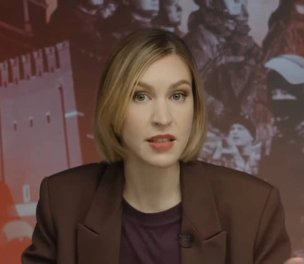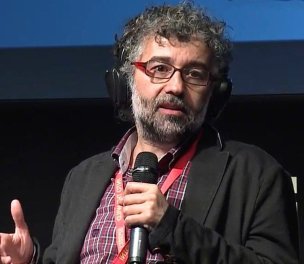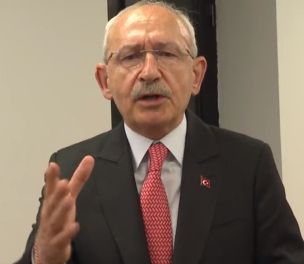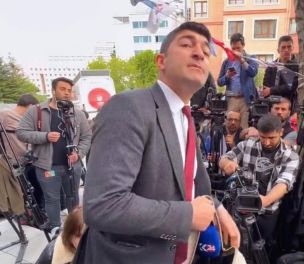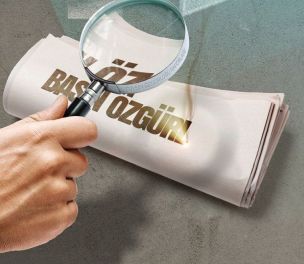Click to read the article in Turkish
As the presidential run-off approaches, Reporters Without Borders (RSF) published a press statement on May 25, shedding light on the biased coverage exhibited by Turkey's media during the parliamentary and initial round of presidential elections held on May 14, as well as the impending second round on May 28.
The press freedom watchdog accuses incumbent President Recep Tayyip Erdoğan of using his power to manipulate the elections by suppressing reliable and pluralistic news coverage.
During his 20-year-long tenure in various forms, the incumbent employed tactics such as harassing and imprisoning independent journalists, exerting control over state media, acquiring private media outlets through pro-government billionaires, and providing subsidies to media outlets supporting him. As a result, he now controls around 85% of the country's media, RSF states, with far-reaching consequences.
60 times more coverage
The allocation of airtime and editorial control has been grossly unfair, with Erdoğan receiving significantly more coverage than his main challenger, Kemal Kılıçdaroğlu.
In April 2023, the President received 60 times more coverage on the public TV channel TRT Haber (TRT News) than his main rival. However, the media bias extends beyond providing excessive coverage to Erdoğan; it also includes actively attacking his opponent without allowing him the opportunity to respond.
The NGO points out that on May 12, just two days before the dual elections, the Justice and Development (AKP) chair used multiple broadcast channels to subject the opposition leader to a series of verbal attacks for nearly an hour and a half.
Notably, Erdoğan was not questioned about important issues such as political corruption, the economic crisis, or the government's handling of recent events like the February 6 earthquake.
Erol Önderoğu, RSF's Turkey representative, strongly criticized the country's media system, stating, "In Turkey, a system has been created for carrying out extremely serious violations of press freedom and pluralism. This flagrant iniquity obviously undermines the trustworthiness of the vote."
Article 299
The oppressive environment for journalists in Turkey has persisted for a decade, with the justice system regularly harassing and imprisoning journalists, the press watchdog notes. Since June 2022, at least 32 pro-Kurdish journalists and media workers have been arrested on charges of alleged membership of the outlawed Kurdistan Workers' Party (PKK). While some have been released, the majority remain in custody.
Turkey's penal code, including the infamous Article 299, "Insulting the President of Turkey" provisions, has been used to prosecute around 200 journalists since 2014, accusing them of "insulting" incumbent Erdoğan, RSF emphasizes.
Additionally, the courts censored over 550 online journalistic pieces in 2022, particularly those uncovering corruption and political practices linked to the government, citing bianet.
BIK & RTÜK
The pressure on media outlets is further intensified by the Press Advertisement Agency (BIK), which manipulates the press ethics code to penalize newspapers critical of the government. The broadcast media regulator, RTÜK, imposes exorbitant fines on outspoken TV channels, with the majority of fines targeting critical channels, the NGO underscores.
Prior to the elections, Turkey's press freedom ranking plummeted, falling 16 places in RSF's latest World Press Freedom Index. The country is now ranked 165th out of 180, indicating a severe threat to journalistic independence and democratic decision-making.
CLICK - BİA Media Monitoring Database
CLICK - BİA Media Monitoring Reports
CLICK - BİA Media Monitoring 2022 Annual Report: Journalists Shackled Ahead of Elections
(HA/WM)




.jpg)
.jpg)

